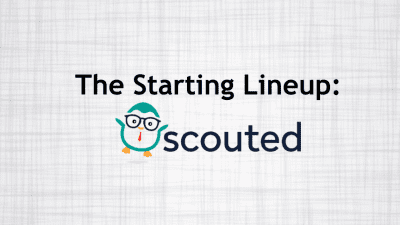Let’s face it, it’s not fun getting turned down for a job. If and when we do, the biggest question we ask ourselves is, “Why?”
While some employers may provide feedback as to why they decided to go in another direction, many won’t provide any feedback or err on the side of caution and share 1-2 vague points.
Also on Mediabistro


Getting turned down from a role isn’t always in your control, but today we wanted to talk about the aspects that are in your control during an interview process. If you think of any we missed, leave your ideas in the comments below!
Poor communication – especially in jobs where it matters
In some cases in everyday life, it might be ok to take a couple of days to respond to an email. Communicating with a hiring manager, however, isn’t one of them. Be sure to respond to any emails or phone calls as soon as you can as this shows hiring managers you’re excited about the role and gives them a peek into your communication skills. This is especially important for roles where communication is a big component so think of your communication with your hiring manager as part of your interview.
Being difficult to schedule
As much as you may be qualified for the job, the timing in which you’re able to speak with someone at the company is still important. What’s unknown to you as a candidate is how many other applicants the company is interviewing, how soon they’d like to hire for the role, and how excited the company is about your resume in the first place. Being difficult to interview could also make them feel as though you’re not very excited about working with their company, either.
That being said, don’t give hiring managers any reason to take your resume out of the stack by making it difficult to schedule interviews. Work around your schedule as best you can to accommodate the company’s hiring timeline.
Cold responses in emails
Many people approach emailing differently. Some treat it like texting, some are formal, and some email as though they’re having a real-time conversation. In most cases, we would recommend your emails sound professional yet friendly. Address the person you’re emailing by name, be to the point and friendly in your email, and sign your name at the bottom.
Also read: How to Follow up After a Job Interview When You Haven’t Heard a Response (With Example Email)
Playing the victim in an interview
It’s important to take personal responsibility when explaining why you made certain career decisions, especially when speaking to why you left past roles. You may or may not have had a poor experience at your previous employer, but what a hiring manager won’t know is the entire story. If a candidate complains about former managers or says things like, “the culture was terrible,” or “I had a terrible boss”, hiring managers may become wary of whether or not you are the type of person that always puts the blame on others.
While you can of course acknowledge challenges with your former employer, be sure to also acknowledge how you might have handled a situation differently and what you learned about yourself as a result.
You can’t specifically explain why you want this job and why it makes sense for your career
No matter how large or small the company, the hiring manager wants whoever they hire to be excited to work there – not just taking any job they can get. Be sure to do your research on the company, get up to date on any recent company or industry news, and have a clear idea of how this job fits in with your overall career goals.
You’re too expensive
Ok, it’s debatable whether or not this is in your control, sometimes a company’s budget just doesn’t meet one’s salary expectations. But, you can set your expectations for certain roles within a company by understanding what type of company it is, its size, location, and other factors that may play into its ability to compensate its employees.
Not explaining how your experience aligns with the role specifically
Let’s say that the role you’re after requires that you have significant experience directly supporting c-suite executives. Or the marketing role you’re after is for a SaaS in the foodservice industry. It’s extremely important to understand what the job requires and tailor your resume and interview as much as you can to the specific position and highlight your personal experience that would make you great for that specific role.
Caring about the wrong things
In another post, we wrote about the right and wrong answers to ask during an interview. Asking questions like “How soon can I be promoted?” or “How much vacation time do you offer?” can be a big red flag to employers that the person they’re interviewing is simply after another job or using their company as a stepping stone rather than caring about the company’s mission itself. While it’s important to know about vacation time, benefits, and your salary, these things should be negotiated after an offer is made.
Getting caught in a lie
You would think that not lying during an interview process would go without saying, but we’re going to mention it anyway. Whether it’s a fib about your GPA, work experience, or simply why you were late for your interview, do your best to be honest, and avoid the temptation to lie at all costs. A good excuse for being late (as well as a heads up call), or better yet, planning ahead, is far better than risking getting caught in a lie and getting turned down from the role immediately.
Not enough passion (!!!)
We’ve said it before (for both candidates and clients) showing your passion and excitement during an interview process is so important! Companies want to know that they’re hiring people who are excited about their mission, their product, and about achieving goals. To better show your excitement for a role or company, be able to articulate why you want to work there, ask great interview questions, and proactively think of what you bring to the table that can help the company.
Like we said, getting turned down from a role is rough, but it’s easier knowing that you did everything in your control to fight for it.
Think of a point we missed? Leave it in the comments below!
Ps. check out the new and exciting companies hiring on Scouted!










